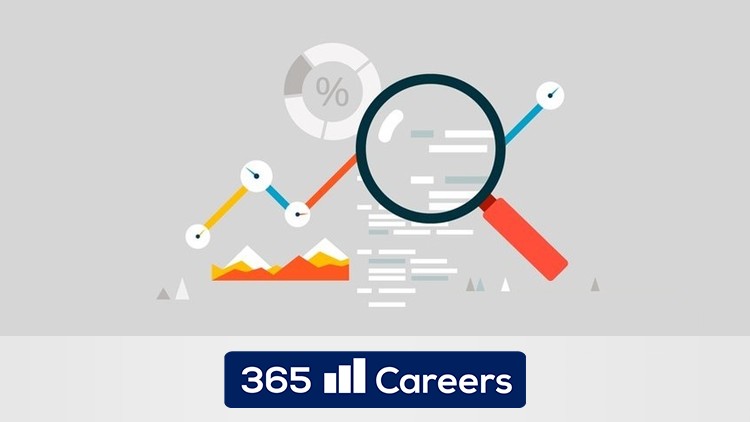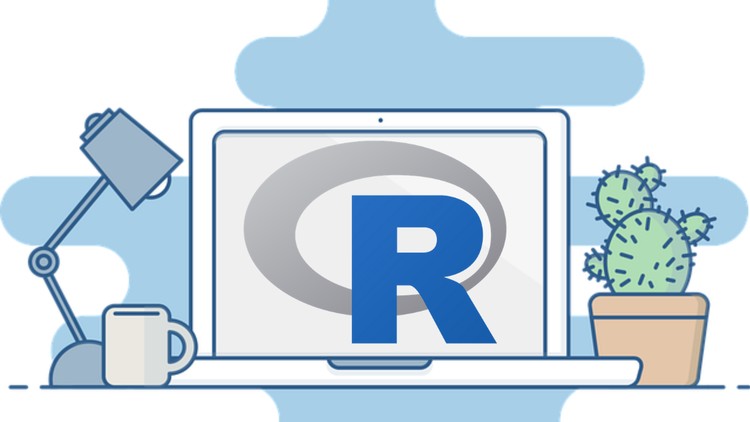Course overview
- Provider
- Udemy
- Course type
- Paid course
- Level
- All Levels
- Duration
- 21 hours
- Lessons
- 39 lessons
- Certificate
- Available on completion
- Course author
- Uplatz Training
-
- Deep practical knowledge of R programming language
- Become a Data Scientist, Data Engineer, Data Analyst or Consultant
- Fundamentals and setup of R Language
- Get familiar with RStudio
- Variables and Data Types
- Input-Output Features in R
- Operators in R
- Data Structure in R
- Vectors, Lists and their application
- R Programs for Lists and Vectors in RStudio
- Matrix and application of Matrices in R with R Programs
- Arrays with R Programs for Arrays in RStudio
- Data Frames and R Programs for Data Frame in RStudio
- Factors, application of Factors, R Programs for Factors in RStudio
- Decision-making in R, types of decision-making statements with R Programs
- Loops in R, flowcharts and programs for loops in R
- Functions in R
- Strings in R
- Packages in R
- Data and File Management in R
- Plotting in R (graphs, charts, plots, histograms)
- Write complex R programs for practical industry scenarios
Description
A warm welcome to the R Programming course by Uplatz.
R is a programming language that provides a wide variety of statistical (linear and nonlinear modelling, classical statistical tests, time-series analysis, classification, clustering) and graphical techniques, and is highly extensible.
While there is something called the S language which is often the vehicle of choice for research in statistical methodology, on the other hand R provides an Open Source route to participation in that activity. R is nothing but an integrated suite of software facilities for data manipulation, calculation and graphical display. It includes an effective data handling and storage facility, a suite of operators for calculations on arrays, in particular matrices, a large, coherent, integrated collection of intermediate tools for data analysis, graphical facilities for data analysis and display either on-screen or on hardcopy, and a well-developed, simple and effective programming language which includes conditionals, loops, user-defined recursive functions and input and output facilities.
R can be considered as an integrated version of a programming language and software environment for statistical analysis, graphics representation and reporting. R was created by Ross Ihaka and Robert Gentleman at the University of Auckland, New Zealand, and is currently developed by the R Development Core Team. R is freely available under the GNU General Public License, and pre-compiled binary versions are provided for various operating systems like Linux, Windows and Mac. This programming language was named R, based on the first letter of first name of the two R authors (Robert Gentleman and Ross Ihaka), and partly a play on the name of the Bell Labs Language S.
This R Programming course by Uplatz is designed for software programmers, statisticians and data miners who are looking forward for developing statistical software using R programming. Even if you are a beginner, this R course is the perfect place to start. If you are trying to understand the R programming language as a beginner, this R Programming course will provide you enough understanding on almost all the concepts of the language from where you can take yourself to higher levels of expertise. This R tutorial will provide you an opportunity to take a deep-dive into R programming and build your R skills from scratch. To get the most out of the R programming training, you would need to practice as you proceed with the tutorials.
After successful completion of the R Programming training course you will be able to:
Master the use of the R and RStudio interactive environment
Expand R by installing R packages
Explore and understand how to use the R documentation
Read Structured Data into R from various sources
Understand the different data types in R
Understand the different data structures in R
R programming constructs - variables, functions, string manipulation, loops, etc.
Conduct decision-making using R
Able to do Data and file management in R
Packages in R
Plotting and Visualization in R
and more...
R Programming - Course Syllabus
1. Fundamentals of R Language
Introduction to R
History of R
Why R programming Language
Comparison between R and Python
Application of R
2. Setup of R Language
Local Environment setup
Installing R on Windows
Installing R on Linux
RStudio
What is RStudio?
Installation of RStudio
First Program - Hello World
3. Variables and Data Types
Variables in R
Declaration of variable
Variable assignment
Finding variable
Data types in R
Data type conversion
R programs for Variables and Data types in RStudio
4. Input-Output Features in R
scan() function
readline() function
paste() function
paste0() function
cat() function
R Programs for implementing these functions in RStudio
5. Operators in R
Arithmetic Operators
Relational Operators
Logical Operators
Assignment Operators
Miscellaneous Operators
R Programs to perform various operations using operators in RStudio
6. Data Structure in R (part-I)
What is data structure?
Types of data structure
Vector
- What is a vector in R?
- Creating a vector
- Accessing element of vector
- Some more operations on vectors
- R Programs for vectors in RStudio
Application of Vector in R
List
- What is a list in R?
- Creating a list
- Accessing element of list
- Modifying element of list
- Some more operations on list
R Programs for list in RStudio
7. Data Structure in R (part-II)
Matrix or Matrices
- What is matrix in R?
- Creating a matrix
- Accessing element of matrix
- Modifying element of matrix
- Matrix Operations
R Programs for matrices in RStudio
Application of Matrices in R
Arrays
- What are arrays in R?
- Creating an array
- Naming rows and columns
- Accessing element of an array
- Some more operations on arrays
R Programs for arrays in RStudio
8. Data Structure in R (part-III)
Data frame
- What is a data frame in R?
- Creating a data frame
- Accessing element of data frame
- Modifying element of data frame
- Add the new element or component in data frame
- Deleting element of data frame
- Some more operations on data frame
R Programs for data frame in RStudio
Factors
- Factors in R
- Creating a factor
- Accessing element of factor
- Modifying element of factor
R Programs for Factors in RStudio
Application of Factors in R
9. Decision Making in R
Introduction to Decision making
Types of decision-making statements
Introduction, syntax, flowchart and programs for
- if statement
- if…else statement
- if…else if…else statement
- switch statement
10. Loop control in R
Introduction to loops in R
Types of loops in R
- for loop
- while loop
- repeat loop
- nested loop
break and next statement in R
Introduction, syntax, flowchart and programs for
- for loop
- while loop
- repeat loop
- nested loop
11. Functions in R
Introduction to function in R
Built-in Function
User-defined Function
Creating a Function
Function Components
Calling a Function
Recursive Function
Various programs for functions in RStudio
12. Strings in R
Introduction to string in R
- Rules to write R Strings
- Concatenate two or more strings in R
- Find length of String in R
- Extract Substring from a String in R
- Changing the case i.e. Upper to lower case and lower to upper case
Various programs for String in RStudio
13. Packages in R
Introduction to Packages in R
Get the list of all the packages installed in RStudio
Installation of the packages
How to use the packages in R
Useful R Packages for Data Science
R program for package in RStudio
14. Data and File Management in R
Getting and Setting the Working Directory
Input as CSV File
Analysing the CSV File
Writing into a CSV File
R programs to implement CSV file
15. Plotting in R (Part-I)
Line graph
Scatterplots
Pie Charts
3D Pie Chart
16. Plotting in R (Part-II)
Bar / line chart
Histogram
Box plot
Similar courses

-
30 hours
-
488 lessonsCertificate

-
21 hours
-
218 lessonsCertificate


